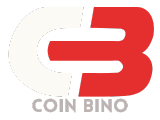The move is aimed at streamlining the application process ahead of MiCA’s official implementation in January 2025 and is part of the country’s broader effort to foster fintech innovation, reduce time-to-market for emerging services, and strengthen Latvia’s position as a regional hub for digital financial services.
MiCA, which partially came into force in June 2024 and is set to become fully effective by December 2024, establishes a harmonized legal framework for issuing crypto-assets and providing related services across the EU. It seeks to fill regulatory gaps left by existing financial services legislation, introducing strict regimes for the issuance and offering of various categories of crypto-assets. By granting pan-European passports to licensed entities, MiCA offers enhanced legal certainty and uniform standards, ensuring that crypto-asset service providers operating in one EU Member State can scale their business across the entire union.
Latvia’s decision to provide free pre-licensing consultations comes at a critical juncture. From January 2025, when MiCA’s comprehensive framework is set to be fully operational, crypto-asset service providers will need authorizations from competent authorities to offer or trade their products legally within the EU. Under the initiative, Latvijas Banka experts will offer one-on-one guidance on the viability of applications, regulatory compliance issues, and documentation requirements. By clarifying expectations before official applications are submitted, the central bank aims to help applicants avoid lengthy delays and potential setbacks.
Similar pre-licensing consultations in other financial verticals have previously enabled companies to secure their licenses within as little as three months. In the crypto-asset sphere, this expedited approach is expected to significantly reduce downtime following the new regulation’s enactment, accelerating providers’ time-to-market.
Start-ups and established firms alike can thus benefit from Latvia’s supportive infrastructure, which includes a regulatory sandbox for testing solutions, an innovation hub offering advice on licensing and IT security, and a business-friendly “startup law” that provides incentives such as reduced social tax rates, waived income tax, and co-financing opportunities for highly qualified employees.
Representatives from Latvijas Banka have highlighted that the country’s regulatory environment is both aligned with EU standards and open to advancement. By balancing flexibility with responsibility, Latvia is striving to position itself as an attractive destination for fintech operators seeking clarity, efficiency, and competitive supervision costs. Approved crypto-asset service providers will pay a supervision fee of 0.6%, with a minimum annual fee of €3,000.
A MiCA license obtained in Latvia will grant firms the option to operate seamlessly throughout the EU, leveraging the “passporting” mechanism embedded in the regulation. This EU-wide recognition can be a key strategic advantage for companies looking to scale rapidly and tap into the broader European market.






